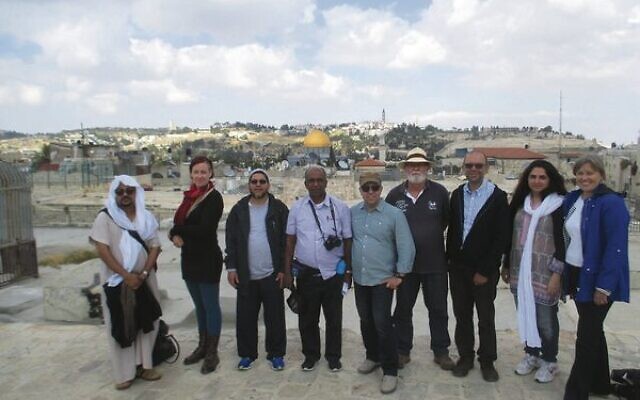We need to come together and talk
Diaspora communities have come together to stand with Israel in unmatched ways. Unfortunately, if history shows us anything, it is that this will not be the last crisis in the region.

For a few weeks now, Jews the world over have been crying and walking around in a daze, trying to focus on our daily lives, but constantly thinking about our family and friends in Israel. Almost every Jew is somehow connected to a victim, someone directly affected by the current conflict, or a defender of Israel. When Israel is attacked, it is remarkable how incredibly small the world seems to become.
In Melbourne, the news from Israel has united us in unprecedented ways. The day after the events began, at a gathering at Caulfield Shule, not only did men and women sit together, but a Reform rabbi was welcomed and included in the proceedings at an Orthodox congregation, and the community singing was led by a female in front of most of the community’s Orthodox rabbis.
The events of unity have brought Jews (and other supporters) together from across the political, religious and social spectrums. I and many others see this as progress, though it is unfortunate that it takes a crisis and an external threat to bring about such unity. We are united though because our brothers and sisters in Israel were attacked, and we feel it personally because as Jews, it is impossible to extricate Israel from the Jewish community, even so far away in the Diaspora. Israel is part of our soul and our being.
Yet across the world, for a number of historical, political, religious and other reasons, Israel has long been seen as controversial in the eyes of some. In the interfaith dialogue space in particular, it was seen as a taboo topic. Despite that, I have spent much of my adult life trying to bring people together. Yes, Israel and Judaism are central to my life and will always be, but what connects me to someone very different from me and with a very different worldview is simply the fact that we are both human. Interfaith or intercultural dialogue is therefore simply about connecting on a personal level. Some of the most interesting, fascinating and challenging but respectful discussions that I have ever had have been with people who I fundamentally disagree with, yet we have been able to find common ground. And we don’t always talk about religious matters. We just discuss issues in our community or in the world from different view points and each of us benefits from seeing things in a slightly different way. On top of that, all of us feel it deeply when a religious intuition is attacked anywhere in the world, or when people commit an act in the name of their faith.
In the last few weeks, some of these bonds of harmony were shattered. Longstanding members of interfaith organisations sensationally quit, and even for myself and others who have not tendered our resignations, our commitment to the cause has come greatly into question. However, I for one still strongly believe in the purpose of organisations that bring people together. Now as a Jewish community, because of what is going on halfway around the world, we have come together and stand united with Israel, as we should be doing. Some of us may disagree on how Israel should go about defending itself or what the ultimate outcome of the actions should be, but all of us see that the actions of Hamas have been abhorrent and that something needs to be done for Israel to be able to live peacefully with its neighbours, as has been the goal for 75 years.
It is unsurprising that some of our interfaith compatriots, who were brought up with a very different outlook on the world, see things differently. But that is at a macro level. I still believe that on a micro level we need to come together, to talk about confronting issues, and to see the humanity in each other. Israel used to be a taboo topic within interfaith dialogue, but for the last decade or two it has become much more acceptable. In fact, many of the non-Jewish members of the various organisations have been to Israel, sometimes multiple times, and have changed some of their opinions as a result. Some have even reached out to me and many other members of the Jewish community privately in the last few weeks to show their support and solidarity.
The world has changed greatly since October 7. Israel is almost unrecognisable in terms of how it now functions and operates, while Diaspora communities have come together to stand with Israel in unmatched ways. Unfortunately, if history shows us anything, it is that this will not be the last crisis in the region. Tensions are currently high both in the Middle East and in much of the rest of the world because of the passions that such crises always provoke, but for me and for many others, the same passions also give me extra resolve to continue my pursuit of harmony and dialogue, to show those who I disagree with how human we all are, and ultimately to pursue and pray for peace together.
Alex Kats is the Jewish co-chair of the Council of Christians and Jews (CCJ), a board member of the Jewish Christian Muslim Association (JCMA), and a member of the interfaith and multicultural advisory committees of the City of Port Phillip.

comments